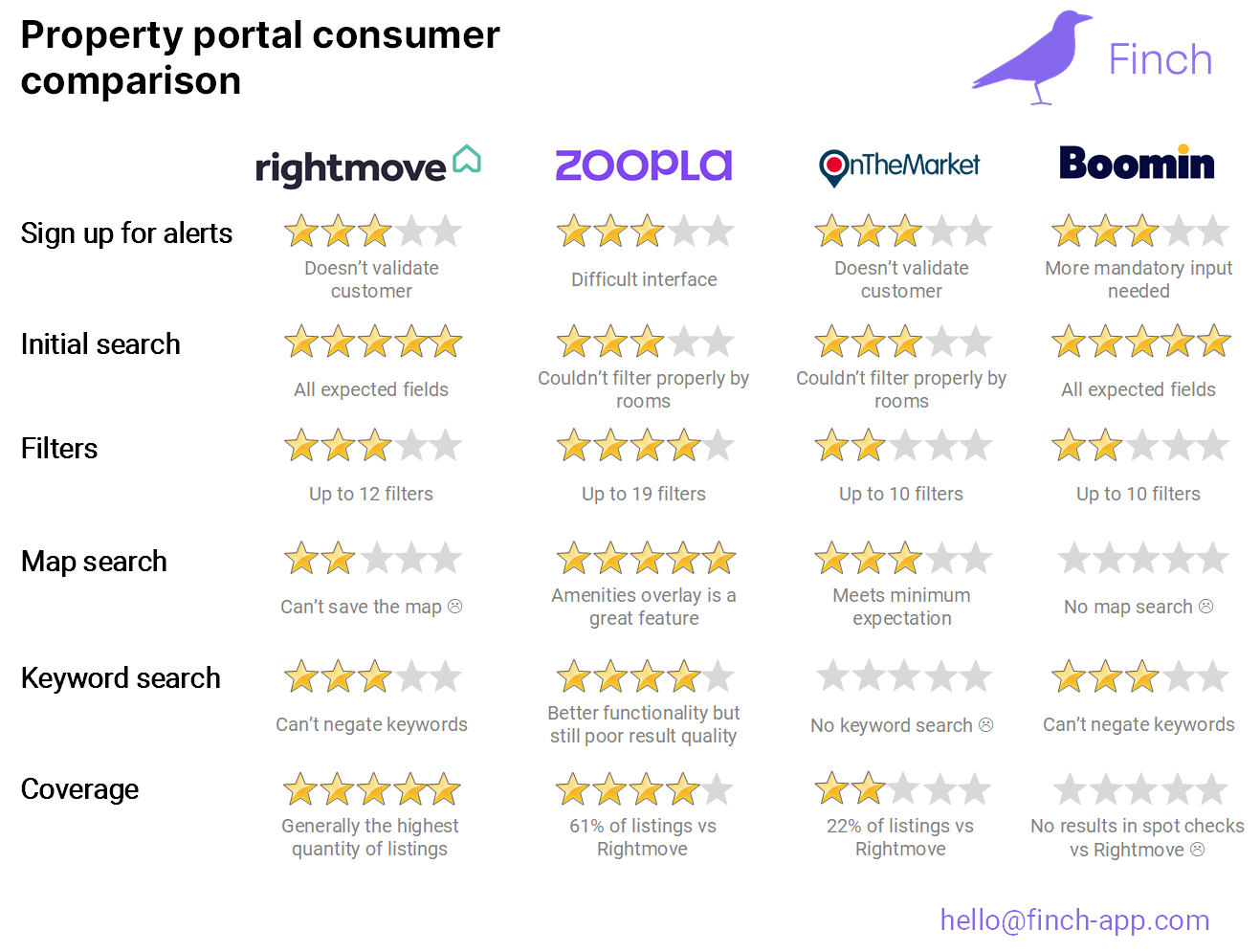As the table above shows Zoopla provides the best overall experience but of course Rightmove still carries the most properties which is the main reason the consumer is there in the first place. As the most mature platform it’s surprising Rightmove’s offering is still much the same as it was five years ago. Why?
One of the challenges faced by all the portals is getting the data they require from the agents. In its infancy Rightmove created a data feed specification (ADF) which soon became the de-facto standard for third party systems needing to upload data to property portals. Zoopla did eventually release their own data feed specification but to all intents and purposes the data collected by the portals from agents is the same and hasn’t changed dramatically year on year. One of the reasons for this is the costs involved in changing the data feed contents. Once agreed Proptech CRM suppliers then need to update their software to 1) hold the data and 2) include it in their feeds. One of the most high profile changes to portal data feeds in recent years were the alterations required to cater for the Tenant Fee ban which came into force in June 2019. As can be seen by this article in Property Industry Eye some agents are still getting into hot water two years on.
The key point here is that portals will be reluctant to force feed changes on agents because of the potential disruption and cost and rarely do unless required to by legislation. It’s a risk for the portal especially the newer entrants who don’t want to put obstacles in the way of an agent joining or staying with them.
So the portals are generally speaking working with similar data, how are they performing?
I found my self frustrated with the lack of uniformity in where data was displayed and how it could be filtered, not just across the different portals which is to be expected but within the same portal. This in a lot of cases is because there are not always specific locations for a data point, so the agent will just use a general text field such as property description or bullet points.
As an example if I wanted to restrict my search to Freehold properties the only way to achieve this was via a keyword search which returned sketchy results at best. Whist on the subject of tenure I found no formality in the way remaining lease lengths were communicated. To me this is an important data point especially when evaluating the price being asked for a property. Some would simply state lease = 99 years, others lease remaining 99 years. Without knowing when the lease commenced both statements are meaningless. Tenure is just one example, generally I came away underwhelmed with the searching experience.
Basics not Gimmicks. With the arrival of Boomin we now have the option of signing up for “Secret Property” alerts. This feature provides access to properties that are being valued but are not yet on the market. Personally I’d rather spend by time looking at properties that have actually been instructed rather than those that might come to market or of course might not!
For the consumer the ideal scenario would be a single portal being feed all available property. Portal aggregators such as www.nestoria.co.uk have attempted to provide something similar but of course do not carry stock from all the major portals so in essence it’s yet another portal for the consumer to register with showing very few unique properties.
Conclusions
Do the public really have the appetite for a fourth portal? In my view no.
Whist the consumer utopia of a single portal is unrealistic perhaps the best we can hope for is a merger between OTM and Boomin. If the combined millions they are currently spending on competing platforms were combined they should be in a position to provide a real third choice. This in turn should drive up standards and innovation providing real competition for Rightmove and Zoopla.








